
Will it play in Peoria?
Vaudeville entertainers are believed to have been the first to pose that question when scripting their acts in the early 1900s, thinking if the material went over well with crowds in a traditional heartland city such as Peoria, it’d probably land with mainstream audiences across the country.
The Peoria query popularized by the likes of Groucho Marx and Jack Benny caught on with product marketers and politicians, who looked to this quintessentially Middle American city and its representative demographics to gauge the mass appeal of their latest gadgets and campaign platforms.
Restaurant chains and big-box stores still test many of their newest offerings in the riverfront city 160 miles southwest of Chicago before considering full-scale rollouts, Peoria officials say.
But in an era of widening political division nationwide, some Peoria residents say it feels like politicians are less and less interested in finding the center their city has long represented — and instead are more focused on playing to the extremes.
“It seems like there is no middle ground out there anymore,” Carrie Bryant said outside the downtown Peoria legal office where she works. “Reasonable people have changed into unreasonable people. We have so many huge problems, but people would rather call each other names. It just makes your heart sink.”
Renee Myatt wishes people would focus on the future — not a distorted past.
“I’m trying to leave a decent world for my grandchildren, and there are people still talking about the 2020 election and nonsense about stealing elections,” Myatt said while waiting for a bus along the city’s West Main Street business corridor. “We’ve got real problems. Gotta move on from the made-up ones.”
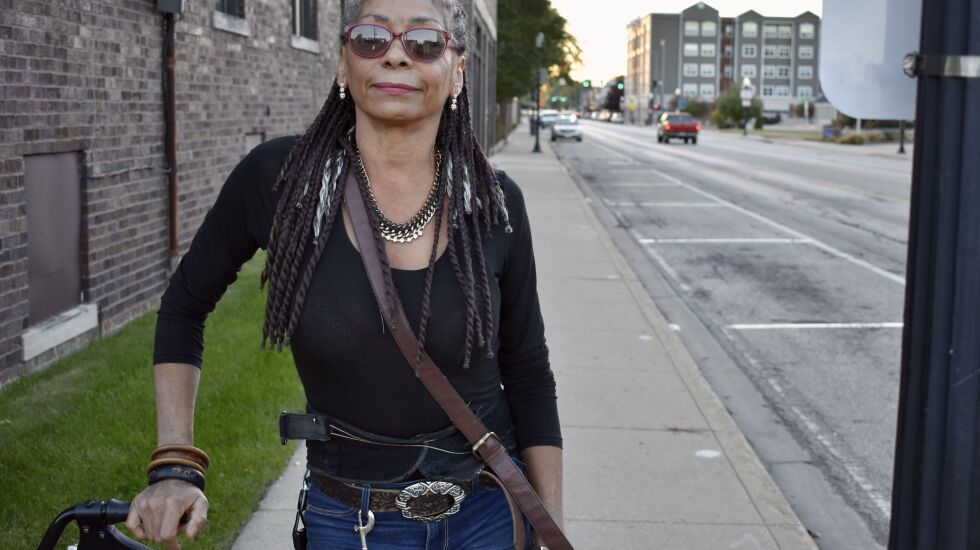
Bryant and Myatt were among dozens of likely voters the Chicago Sun-Times spoke with on the streets of Peoria this month to survey the issues on their minds heading into November’s general election.
Democratic- and Republican-leaning residents alike agreed that they want leaders to cut through the political noise to tackle the real problems felt in Illinois’ eighth-largest city: rising health care costs, inflation, public corruption, economic stagnation, rampant gun violence, disarray in Illinois’ child welfare system and more.
‘Friends in other states who think Illinois is a joke’
Myatt, a retired nurse, said she typically votes for Democrats who are more likely to support environmental issues, including expanding solar power and electric vehicle infrastructure. But she said it’s gotten tougher for her to support the party as a parade of Democratic officials have been indicted over the past few years.
“I’ve got friends in other states who think Illinois is a joke, that it’s like the Wild West for politicians. It’s frustrating. I wish we could root that out,” she said.
Truck driver James Kedessen said he’s been convinced for years that the only way to do that is to vote for Republicans.
“The state is basically bankrupt on pensions. The crime is out of control. And they [Democrats] have been in power it seems like forever and let it happen,” he said, adding that his top priority heading toward Nov. 8 is tamping down gas prices and inflation.
Myatt and Kedessen find themselves on different ends of a political spectrum that is well represented on both sides in Peoria, which has typically been a Democratic-leaning, pale blue urban dot in a sea of red, solidly Republican rural counties in central Illinois.
While President Joe Biden won some downtown precincts in 2020 by 50 percentage points or more, former President Donald Trump nabbed a few precincts by smaller margins on the north end of the city.
Biden won Peoria County overall with about 52% of the vote to Trump’s 46%. The city’s roughly 113,000 residents account for about two-thirds of the countywide population.
‘From Abraham Lincoln to Richard Pryor’
The city has long been home to opposing viewpoints.
Archaeologists have found evidence of indigenous groups in the fertile valleys of present-day Peoria dating back more than 10,000 years, millennia before it became the earliest European settlement in Illinois following the arrival of French explorers in 1673.
Named for one of the Native American groups forced off the land over the ensuing generations, the city was incorporated in 1845 and thrived thanks to its prolific farmland and coal mines, as well as its prime location on the Illinois River that would eventually connect the Mississippi River to Lake Michigan.
Peoria was home to abolitionists and Southern sympathizers alike as the city became a well-known stop on the Underground Railroad for enslaved people escaping to freedom. Abraham Lincoln took to the steps of the Peoria County courthouse in 1854 to speak against slavery in a three-hour address that helped bolster his presidential aspirations.
The city’s abundance of water and grain along with its port city wherewithal helped make it the widely acknowledged “Whiskey Capital of the World,” with dozens of distilleries pumping out millions of gallons of booze to the Midwest and beyond in an industry that continued to boom through Prohibition.
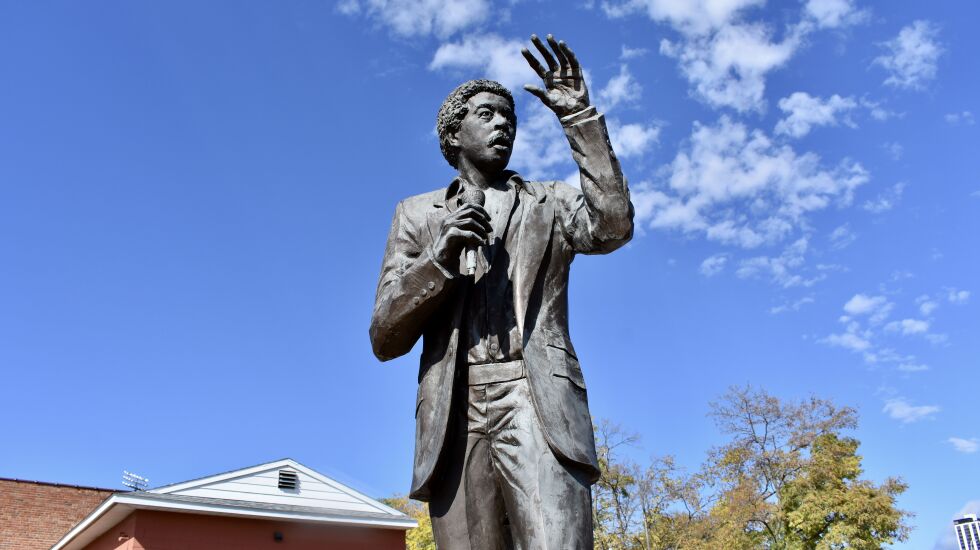
In contrast to the bland reputation suggested by that ubiquitous 20th century question of how products and ideas would “play in Peoria,” the city’s bootlegging and entertainment business during Prohibition brought with it the sordid, free-wheeling nightlife and red-light district that would welcome Richard Pryor into the world.
“I was brought up in a whorehouse in Peoria,” the legendary comedian famously recalled. “My mother and father lived there and worked there.”
Pryor is venerated in his hometown with a 9-foot statue, but he once described his Peoria upbringing to interviewer Barbara Walters as “hell” — an all-too-common experience for many Black residents in the 1940s and ‘50s.
‘It’s an evolving city’
“We do come from systemic racism,” said Colleen Johnson, executive director of the Peoria Historical Society. “As we had white flight, we subsidized people moving farther out of downtown, and we didn’t provide transportation to those areas. We had redlining. We’re working hard to recover from that, but I think we’re very deliberate about recovering from it.”
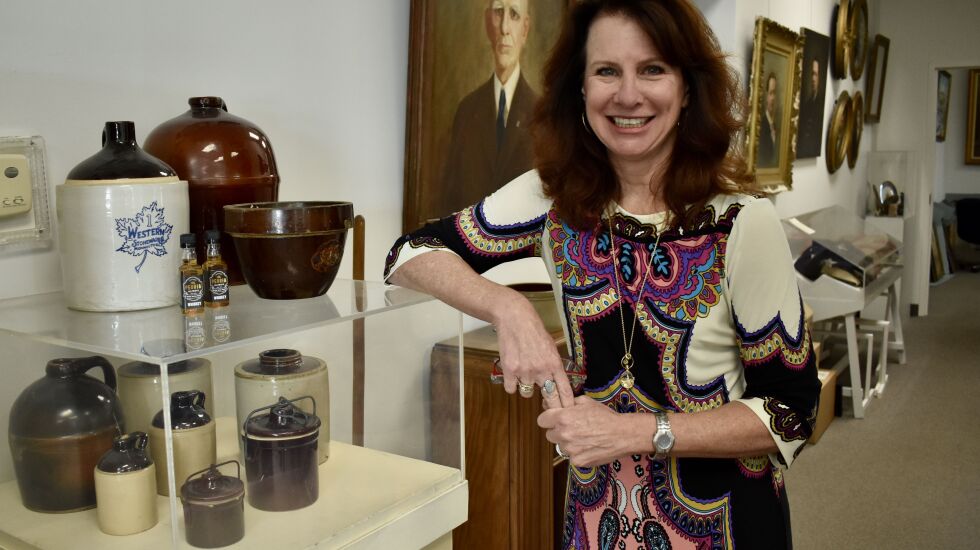
While the city has seen slight population declines over the past few decades, Peoria’s Black population has steadily grown, accounting for 27% of residents in the 2020 Census. About 56% of Peorians identify as white, 7% Latino and 6% Asian American.
Last year, Peoria elected Rita Ali as mayor, the first person of color and the first woman to lead the city.
“Peoria is a progressive city, in many ways,” Ali said in an interview with the Sun-Times at her City Hall office. “We’re conservative too, but I was proud of the city, that after 185 years of all white men, Peoria chose a woman and a person of color. It’s an evolving city.”

As in many diverse Illinois cities, the lingering inequities of history are immediately evident within a short drive across town.
The multimillion-dollar homes and breathtaking vistas of the Illinois River Valley in a mostly white neighborhood along Grandview Drive — once dubbed “the world’s most beautiful drive” by former President Theodore Roosevelt — quickly give way to modest bungalows and vacant lots in mostly Black neighborhoods on Peoria’s south end.
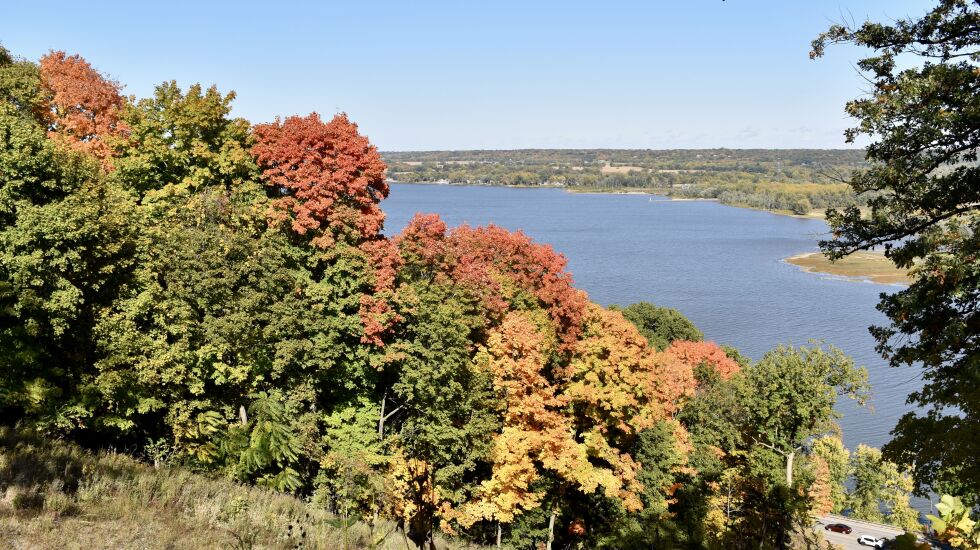
The city’s Black community continues to bear the brunt of a deeply entrenched gun violence epidemic, as well as Peoria’s 19.7% poverty rate that outpaces the statewide rate of 12.1%.
“The violence has gotten crazy. It’s almost like it’s turning into a miniature Chicago,” said Jeremiah Collard, adding that the spike means he’ll probably vote for Republicans he thinks are taking the problem more seriously.
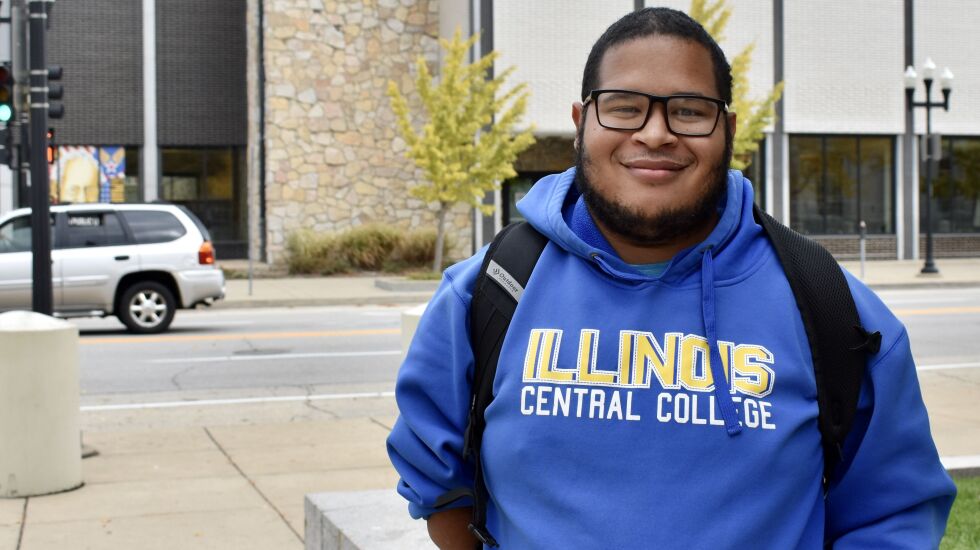
“To me, being a brown-skinned woman — politics is never on our side,” said Cleanna Parker-Lewis, 27. She said she’d vote for candidates who would overhaul the Illinois Department of Children and Family Services, but hasn’t yet seen any politician with real answers for the troubled system in which she found herself mired during a tumultuous childhood.
“I don’t really have any good things to say about people in high places because they turn a blind eye to s—- as long as their pockets stay fat,” Parker-Lewis said.
‘We won’t forget that when it comes to voting’
Some residents say they’ve seen progress in other areas.
Jessica Stephenson, the owner of Lit on Fire — a Peoria bookstore that highlights work from LGBTQ authors and other writers from marginalized communities — said the city has seen an influx of progressive-minded residents over the past few years.
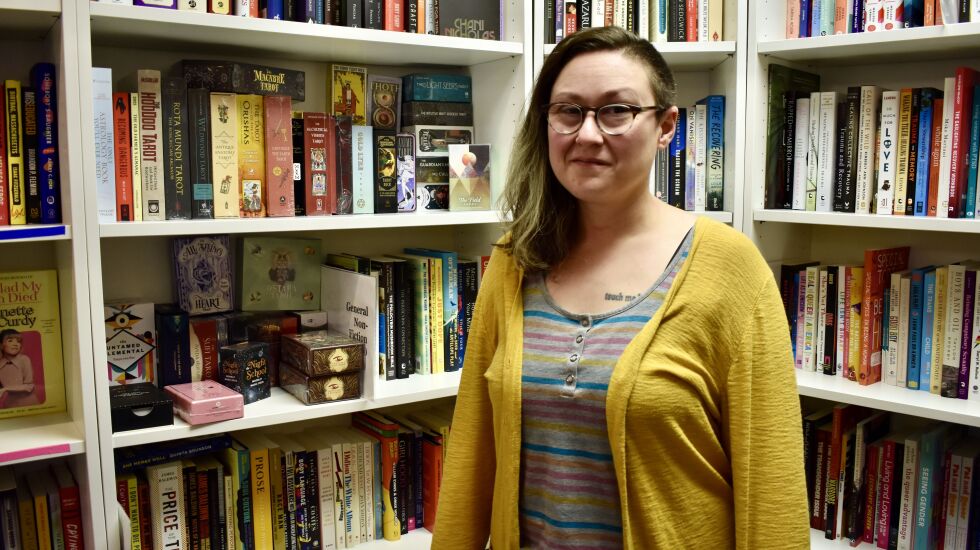
Stephenson said that while she’d like to see a more drastic overhaul of the political system, backing Democratic Gov. J.B. Pritzker over Republican challenger Darren Bailey is an easy choice.
“Illinois keeps doing more and more progressive things under Pritzker, and that makes my heart happy,” Stephenson said, pointing to cannabis legalization and the expungement of criminal records for many pot-related offenses.
Rodney Nelson, a part-time school bus driver, said he doesn’t fully align with either party, but his support for abortion rights means he’ll likely vote Democratic Nov. 8.

“I don’t think men sitting in Washington need to have the say as to what happens to a woman’s body,” Nelson said. “Bailey is too far right for me. Pritzker has said some things that have not pleased me, but of the two, I would pick Pritzker.”
The sitting governor has said more than enough to displease Peoria attorney Ian White, who said he was among the 48% of Peoria County voters who sided with Pritzker in 2018, compared to 44% who voted for former GOP Gov. Bruce Rauner.
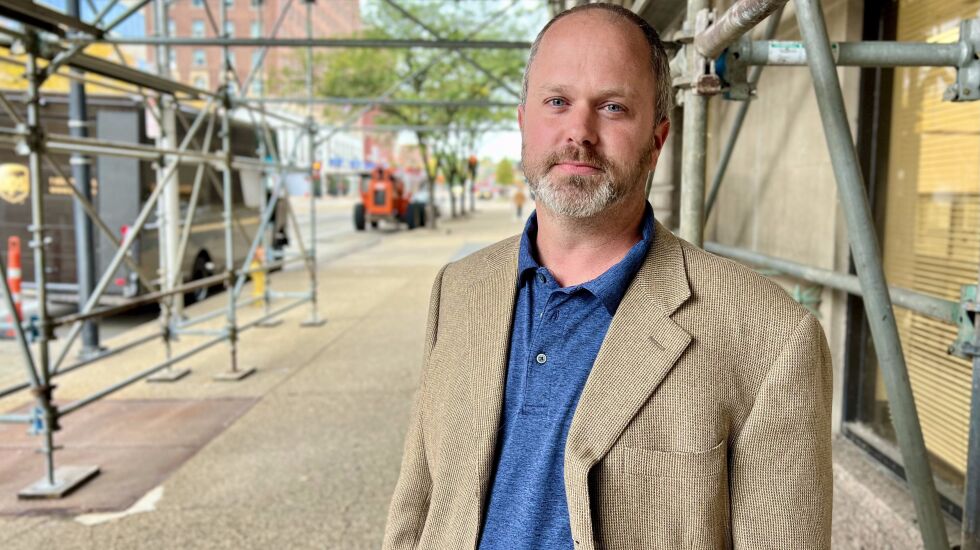
“Pritzker presented pretty well [in 2018]. He still presents pretty well, but when he got bullying about COVID-19 vaccine mandates, and he got bullying about emergency powers, that’s where he lost me,” White said. “I cry foul. It’s been disappointing.”
So even though White supports abortion rights, which Bailey opposes, the attorney said he’ll probably vote for the downstate farmer — thanks in part to the fact that abortion rights are codified in state law that Bailey wouldn’t be able to change.
“Otherwise then, maybe I couldn’t vote for him,” White said.
Jon Walker, owner of the vintage souvenir shop Urban Artifacts, also said Pritzker lost his vote for the way he handled the pandemic.
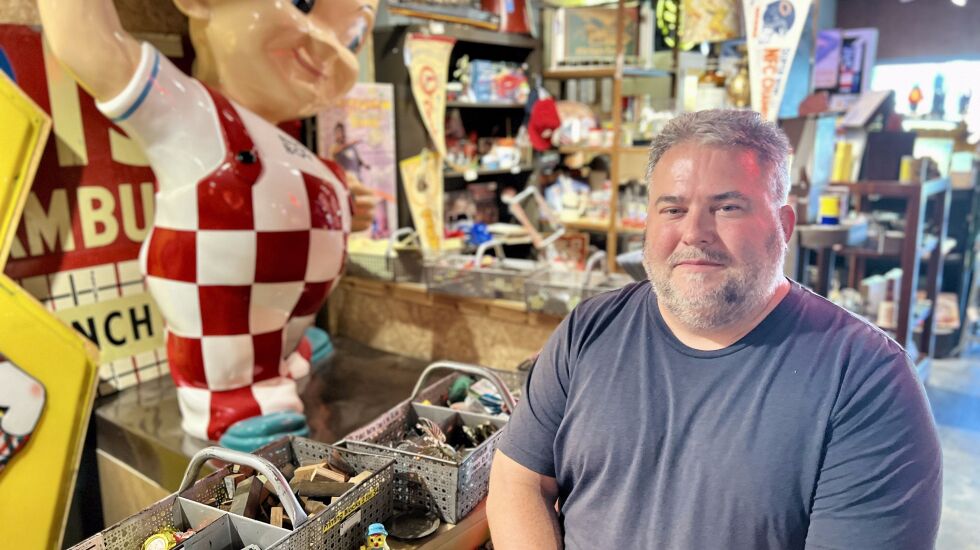
“We were closed for two and a half months. We were very bitter about that, not so much about being closed, but looking at who was allowed to be open, and what’s considered essential,” Walker said. “We won’t forget that when it comes to voting.It was very unfair. That was not the American way.”
Of 34 people who talked to the Sun-Times, 15 said they’d probably vote for Pritzker, 11 supported Bailey and eight said they’re undecided.
Walker said he’s still in the “undecided” camp between Bailey and Libertarian candidate Scott Schluter.
“As usual, it’s a matter of looking for the lesser of two evils,” he said.





























